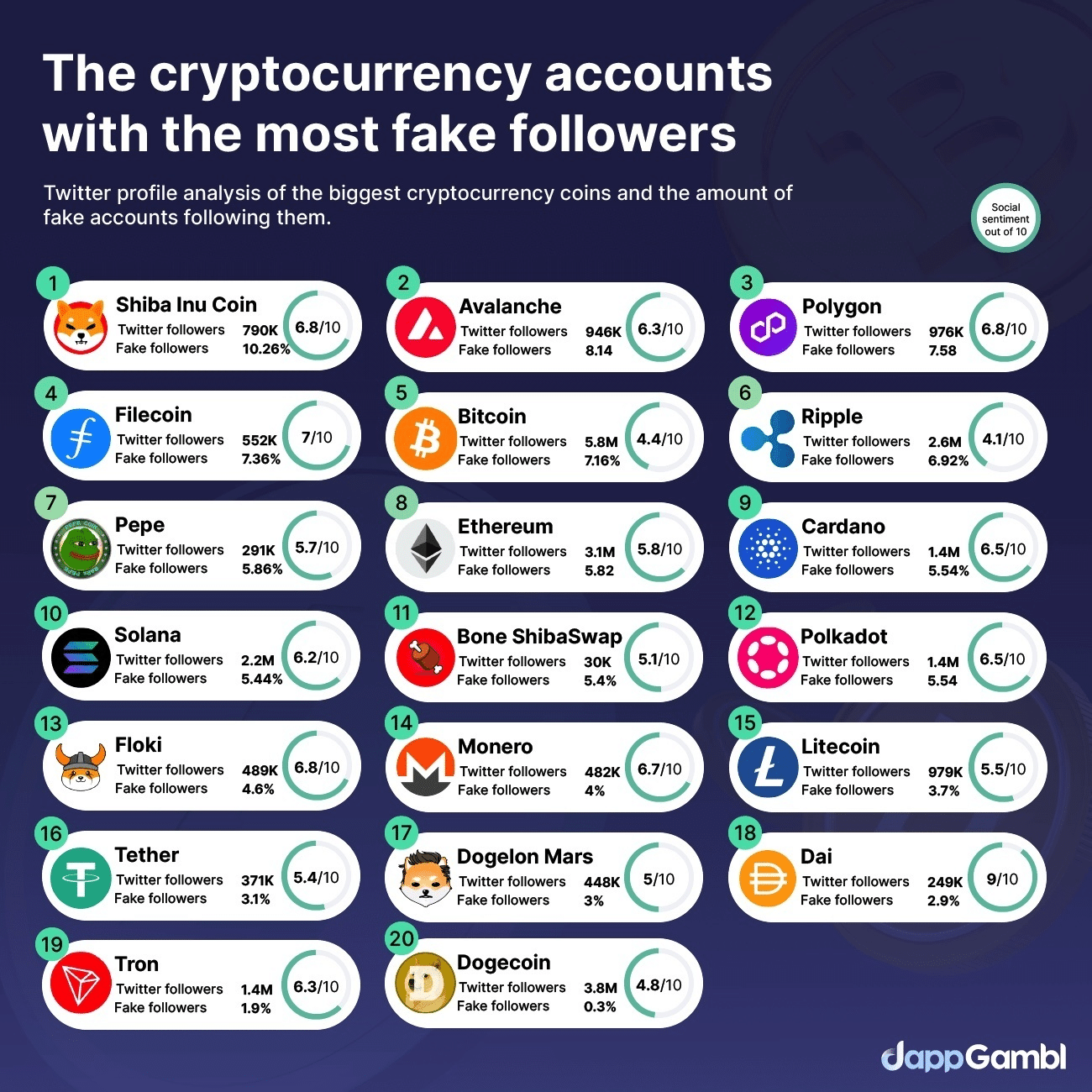Fake followers remain an ongoing issue on Twitter, despite efforts made by management, including the introduction of Twitter Blue subscription. According to dappGambl’s recent investigation, as many as 10% of the followers of crypto influencers and companies on the platform are fake.
In terms of official cryptocurrency accounts, Shiba Inu (SHIB) had the highest number of fake followers at 10.26% or 80,000 accounts. Avalanche (AVAX) ranked second with 8.14% fake followers, followed by Polygon (MATIC) with 7.58% or 73,000 fake accounts.

DappGambl’s analysis revealed that the presence of fake followers is often linked to the popularity of tokens. Notably, Dai (DAI) emerged as the most loved coin on Twitter, while XRP (XRP) was regarded as the most unpopular.
Among crypto influencers and entrepreneurs, Samson Mow had the highest percentage of fake followers, accounting for 10% of his total Twitter following. Notable figures such as Twitter co-founder Jack Dorsey, El Salvador President Nayib Bukele, and Ethereum co-founder Vitalik Buterin also had a significant number of fake followers.
Even high-profile individuals like MicroStrategy co-founder Michael Saylor, Binance CEO Changpeng Zhao, and Tesla CEO Elon Musk were not immune, with varying percentages of fake followers among their counts.
Elon Musk, in particular, faces the challenge of more than 6.7 million fake accounts following him as he strives to combat the problem. Identifying fake accounts involves scrutinizing account creation dates, profile pictures, bios, tweets, as well as examining the followers and accounts they follow.
The issue recently gained attention when a Twitter bot named “Explain This Bob” was suspended following Musk’s allegations of it being a scam. Created by Prabhu Biswal from India, the bot utilized OpenAI’s GPT-4 model to interact with users who tagged the account.
As the prevalence of fake followers persists, it becomes crucial for Twitter and crypto influencers to implement robust measures to address the issue. Engaging in thorough checks and verifications can help protect users from misleading information and fraudulent accounts.






